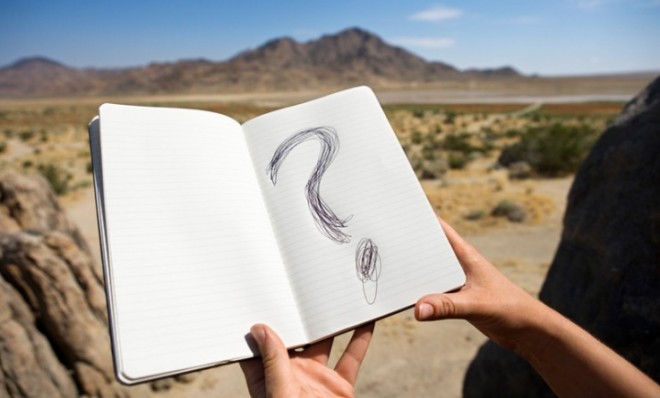6 early theories about the origin of language
Scholars have dubbed these sometimes unsupportable conjectures with names like the La-La Theory and the Ding-Dong Theory


A free daily email with the biggest news stories of the day – and the best features from TheWeek.com
You are now subscribed
Your newsletter sign-up was successful

How did language begin? Words don't leave artifacts behind — writing began long after language did — so theories of language origins have generally been based on hunches. For centuries there had been so much fruitless speculation over the question of how language began that when the Paris Linguistic Society was founded in 1866, its bylaws included a ban on any discussions of it. The early theories are now referred to by the nicknames given to them by language scholars fed up with unsupportable just-so stories.
1. The Bow-Wow Theory
The idea that speech arose from people imitating the sounds that things make: Bow-wow, moo, baa, etc. Not likely, since very few things we talk about have characteristic sounds associated with them, and very few of our words sound anything at all like what they mean.
The Week
Escape your echo chamber. Get the facts behind the news, plus analysis from multiple perspectives.

Sign up for The Week's Free Newsletters
From our morning news briefing to a weekly Good News Newsletter, get the best of The Week delivered directly to your inbox.
From our morning news briefing to a weekly Good News Newsletter, get the best of The Week delivered directly to your inbox.
2. The Pooh-Pooh Theory
The idea that speech comes from the automatic vocal responses to pain, fear, surprise, or other emotions: a laugh, a shriek, a gasp. But plenty of animals make these kinds of sounds too, and they didn't end up with language.
3. The Ding-Ding Theory
The idea that speech reflects some mystical resonance or harmony connected with things in the world. Unclear how one would investigate this.
A free daily email with the biggest news stories of the day – and the best features from TheWeek.com
4. The Yo-he-ho Theory
The idea that speech started with the rhythmic chants and grunts people used to coordinate their physical actions when they worked together. There's a pretty big difference between this kind of thing and what we do most of the time with language.
5. The Ta-Ta Theory
The idea that speech came from the use of tongue and mouth gestures to mimic manual gestures. For example, saying ta-ta is like waving goodbye with your tongue. But most of the things we talk about do not have characteristic gestures associated with them, much less gestures you can imitate with the tongue and mouth.
6. The La-La Theory
The idea that speech emerged from the sounds of inspired playfulness, love, poetic sensibility, and song. This one is lovely, and no more or less likely than any of the others.
These days
About a century after banishment of the language origin question, scientists started to consider it again, but this time using evidence from paleontology about the likely brain and vocal tract features of early humans and hominids. Rather than speculate about which kinds of vocalizations gave rise to speech sounds, they consider which physical, cognitive, and social factors must first be in place in order for there to be language.
This doesn't make the question of how language started any easier to answer, but it does make you appreciate that whatever those necessary factors are, we got all of 'em. Phew! La la la la. Ta ta!
More from Mental Floss...
* 15 colorful entries from Mrs. Byrne's dictionary of unusual, obscure, and preposterous words
Arika Okrent is editor-at-large at TheWeek.com and a frequent contributor to Mental Floss. She is the author of In the Land of Invented Languages, a history of the attempt to build a better language. She holds a doctorate in linguistics and a first-level certification in Klingon. Follow her on Twitter.
-
 Bad Bunny’s Super Bowl: A win for unity
Bad Bunny’s Super Bowl: A win for unityFeature The global superstar's halftime show was a celebration for everyone to enjoy
-
 Book reviews: ‘Bonfire of the Murdochs’ and ‘The Typewriter and the Guillotine’
Book reviews: ‘Bonfire of the Murdochs’ and ‘The Typewriter and the Guillotine’Feature New insights into the Murdoch family’s turmoil and a renowned journalist’s time in pre-World War II Paris
-
 Witkoff and Kushner tackle Ukraine, Iran in Geneva
Witkoff and Kushner tackle Ukraine, Iran in GenevaSpeed Read Steve Witkoff and Jared Kushner held negotiations aimed at securing a nuclear deal with Iran and an end to Russia’s war in Ukraine
